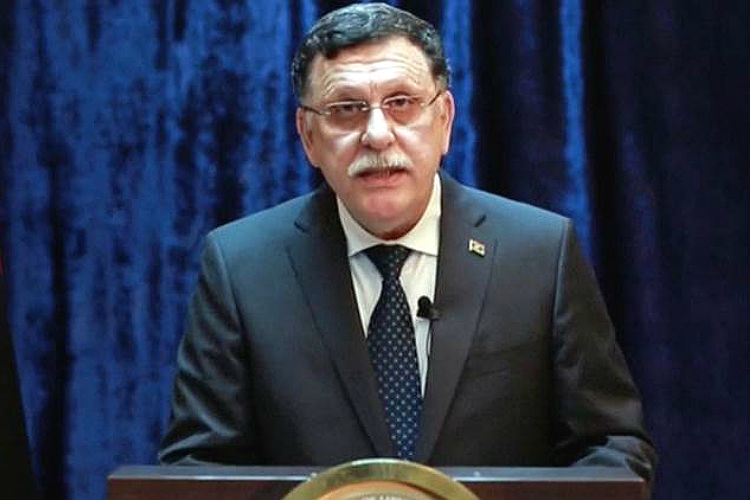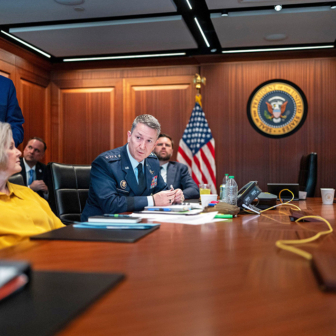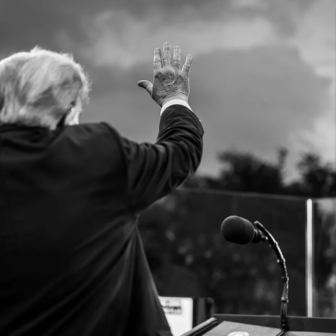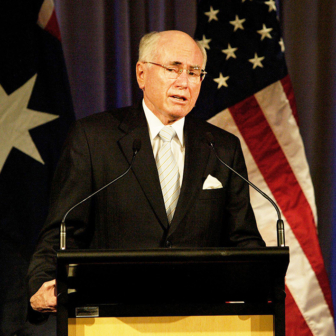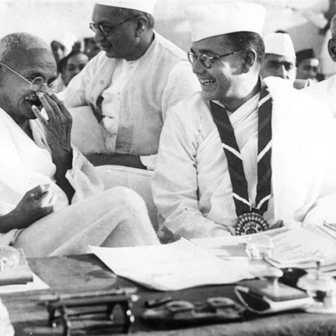Last week’s bombing in Manchester was carried out by a British-born citizen who reportedly had links to the Islamic State affiliate in his parents’ home country of Libya. Although Islamic State has lost much of the territory it once held in that country, it continues to disrupt peace efforts and – as the bombing in Britain tragically highlighted – is providing training to extremists from Europe. But a new deal between the country’s main political forces could reduce the disruption wrought this and other armed groups.
After Muammar Gaddafi was ousted as president, hopes were high that Libya would make a peaceful transition to democracy. The country had a population of just six million people, and plenty of oil revenues to support a functioning bureaucracy. But Libya before 2011 was one of the few countries in the world that had no legislature; instead, Gaddafi had ruled by decree. The army had been coup-proofed, civil servants didn’t know what their responsibilities were from one day to the next, and mercenaries and tactically armed tribes had helped maintain the regime.
During the country’s fight for liberation, thousands of militias emerged, eager to carve out their own territory. Libya was soon awash with weapons. Some militias linked up with terror groups, deepening the divisions that had become so evident after Gaddafi’s fall. Though this had seemed a homogeneous country before the revolution, the years of oppression had been hiding sharp tribal, regional and religious differences.
Against this background, forming a new government has proved arduous. The elections held not long after the revolution were judged to be relatively free and fair, but Libya grappled with two rival governments for several years. Divisions became entrenched in February 2014 when the General National Congress, or GNC, a temporary legislative body filled by Islamist hardliners, refused to disband after its two-year mandate expired.
Elections were held in June 2014 to elect the new Council of Deputies, only to be boycotted by Islamist groups and marred by violence and a very low turnout. Although secularists won decisively, they were forced to flee to Tobruk in the east after armed supporters of the GNC, including the Libya Dawn militias, occupied Tripoli. Fighting broke out between supporters of the GNC and those loyal to the new parliament, displacing over 100,000 people. By July 2014, the situation was so unstable that UN staff were forced to evacuate.
Libya’s leadership was equally fragmented. In October 2012, prime minister–elect Mustafa A.G. Abushagur was ousted after failing a second time to win parliamentary approval for a new cabinet. Former GNC member and human rights lawyer Ali Zeidan was elected in his place, but stepped down in March 2014 and was replaced by Abdullah al-Thani – who resigned the following month after a militia attacked his family.
Early talks to bring the two sides together had failed because the GNC refused to participate. Signs of progress came in December 2015 with a UN-brokered agreement that made the House of Representatives the nation’s main legislative body and transformed the GNC into an advisory State Council with some veto powers. Presiding over a new Government of National Accord, or GNA, based in Tripoli, would be a six-member Presidential Council. The GNA – a cabinet of eighteen ministers along with a prime minister – would function as the executive of the government.
For the plan to work, the House of Representatives needed to endorse the GNA. But the House was dismayed when a pro-GNA militia, the Benghazi Defence Brigades, seized control of the Gulf of Sidra from the Libyan National Army, which defends the House, in March 2016. It voted down the list of GNA ministers several times during the summer of 2016. Meanwhile, the GNA was being criticised for focusing too little on national reconciliation and the circumstances of ordinary Libyans and too much on maintaining support.
Political differences haven’t been the only problem plaguing Libya. Maintaining security has proved to be incredibly difficult; as a result, the oil-rich country has lost nearly $70 billion in potential revenues from petroleum exports. Instead of disarming the militias, the government has paid them protection money. In fact, political parties retain links to the militias they need to protect them. The GNA, for instance, has been aligned with the Bunyan al-Marsus, which ousted Islamic State forces from Sirte, on Libya’s northern coast, in December last year.
The victory at Sirte, which had been captured by Islamic State eighteen months earlier, represented a significant shift in the balance of power of violent groups in Libya. Islamic State’s rise in Libya began in 2014, and at its peak the group had control of over 240 kilometres of coastline around Sirte, as well as the port city of Derna in eastern Libya. By December 2016, its grip on that territory had all but disappeared. Having fled Sirte, the remaining Islamic State fighters have been moving around the country in small, hard-to-locate groups. Though it isn’t the most powerful rebel organisation in Libya, it continues to wreak havoc, undermining the new Libyan government by cutting power and water supplies.
Islamic State competes with a number of other Islamist extremist groups, most notably the Benghazi-based Ansar al-Sharia Libya, or ASL, and the Abu Salim Martyrs Brigade, or ASMB. The former, a major jihadist group, emerged during the Libyan civil war. This is the group responsible for the Benghazi attacks on the US embassy. Although it shares an extremist Salafist philosophy with Islamic State, relations between the two groups are tense. ASL has refused to swear allegiance to the Islamic State’s leader, Abu Bakr al-Baghdadi, instead making connections with al Qaeda affiliates in North Africa. On 28 May, though, the group announced it was disbanding after suffering heavy losses in Benghazi.
ASMB also wants to implement sharia law, specifically within the town of Derna in Libya, where it has enforced strict social codes. After Islamic State arrived in Derna in 2014, the two groups clashed; the conflict became a three-way battle after the Islamic State assassinated ASMB leader Salim Derby, who was part of the Mujahedeen Shura Council, a group to which both ASMB and ASL belonged.
As was the case with ASL, ASMB has mostly local objectives. It was one of the first groups to take up arms during the revolution, and was credited with restoring order in the areas where it operated, but its funds come mostly from smuggling oil and trafficking humans. In fact, Islamic State and other jihadist groups generate up to US$323 million from human trafficking. Oil smuggling costs the Libyan state more than US$360 million, a sizable amount given that Libya’s budget revenues last year were US$5.8 billion.
Though some militias are aligned to the government, no unified national security organisation exists. In this vacuum, field marshal Khalifa Haftar has emerged as a major player. Haftar, who served in the Libyan army under Gaddafi but tried to stage a coup in the 1990s, returned to Libya during the revolution. He launched a military assault, Operation Dignity, against Islamist groups in Benghazi in May 2014, and was nominated by the House of Representatives to serve as general commander of the Libyan National Army. So far, though, he has refused to submit to the GNA. His army seized key oil export terminals in the east of the country in September last year; their presence in the oil crescent lifted production rates from 200,000 to 700,000 barrels a day.
The role Haftar and his army will play in a proposed government of national unity is still unclear. Haftar’s forces have clashed with forces loyal to the GNA in Tripoli, and some observers are worried that his aim is to gain control of more territory in Western Libya, close in on the capital, and then take control of the entire country. But on 2 May, Haftar agreed to meet with prime minister Fayez al-Sarraj in the United Arab Emirates, signalling that he might be willing to make a deal with the GNA. The UAE and Egypt had been big financial supporters of Haftar, but both countries felt that it was time to place more pressure on him to end the stand-off.
That meeting followed what appeared to be a breakthrough in the months-long stalemate between the State Council and the House of Representatives. For over a year, the House of Representatives had refused to approve the Tripoli-based government of national accord until changes were made to the December 2015 UN-brokered agreement. After talks last month in Rome, though, both sides appeared to be optimistic. Each claimed that they had reached a fair and peaceful solution to the important issues to “stop the bleeding.” The hope was that this initial agreement would lead to future compromises.
But Libya still has three, rather than two, centres of power. The first is the GNA, led by al-Sarraj, a former member of the Tobruk parliament. The second is the House of Representatives, which has also been based in Tobruk and supports Haftar. The third is the State Council, made up of former GNC members. With many differences to resolve and many potential disrupters, the country still has a long road ahead to establishing peace and security. •
